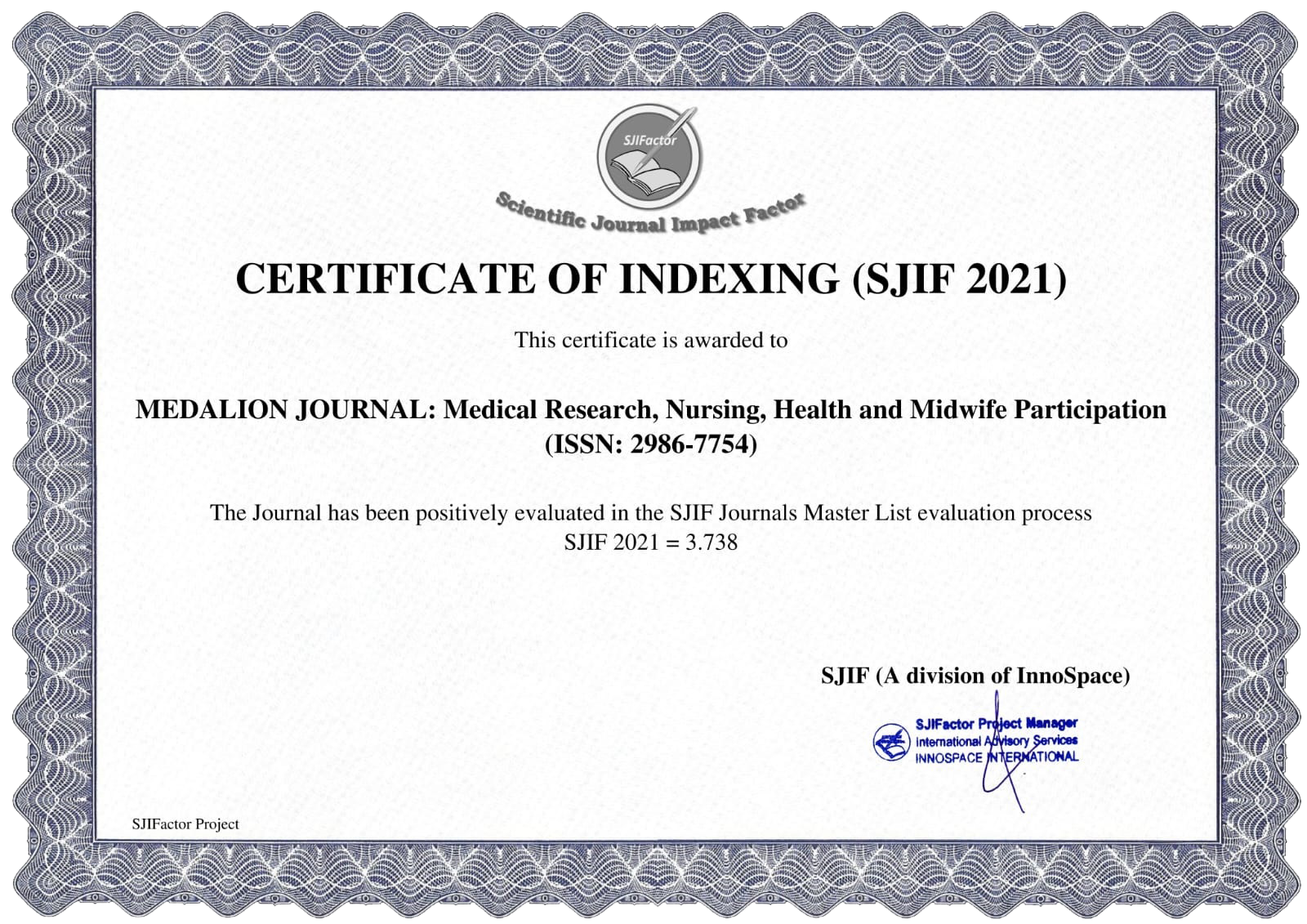COMMUNITY PARTICIPATION IN PREVENTING THE SPREAD OF SMOKING HABITS IN THE SURROUNDING ENVIRONMENT
Main Article Content
Farrel Erlangga Tarigan
Khairunisa Hasanah BR. Simatupang
Naufal Afif Raditya Banurea
M. Daffa Hendry Desky
The prevalence of smoking in Indonesia is very high and has become a public health problem. According to 2023 WHO data, the proportion of cigarettes among the adult population (15+) in Indonesia reached around 34.5%. To address this, the role of the community is essential as a proxy for behavior change. This study reviewed literature and secondary data (WHO, the Indonesian Ministry of Health, BPS, and academic studies) to understand how local community involvement can prevent the spread of smoking. The research method used was a descriptive qualitative study with content analysis of quantitative and qualitative data. The results of the study indicate that community empowerment programs such as anti-smoking campaigns involving community leaders and community-based health education raise awareness and change social norms about smoking (Halim et al., 2024; Sugiyo & Sutrino, 2021). For example, the "Kampung Tanpa Asap Rokok" (Smoke-Free Village) in Surabaya successfully created a smoke-free environment through community mobilization (Sadono & Fatah, 2018). In conclusion, community participation effectively strengthens tobacco control efforts when accompanied by supportive policies, therefore it is recommended to intensify community-based approaches to smoking prevention. (WHO, 2025; Ministry of Health of the Republic of Indonesia, 2024).
World Health Organization (WHO). 2023. Tobacco Indonesia 2023 Country Profile. 1 July 2023. (Technical Document). Available at: WHO Media Repository.
Kementerian Kesehatan RI. 2021. Peringati Hari Tanpa Tembakau Sedunia, Kemenkes Targetkan 5 Juta Masyarakat Berhenti Merokok. 31 Mei 2021. (Press release).
Kementerian Kesehatan RI. 2024. Perokok Aktif di Indonesia Tembus 70 Juta Orang, Mayoritas Anak Muda. 29 Mei 2024. SehatNegeriku. Available at: kemkes.go.id.
Sugiyo, D. & Sutrisno, R.Y. 2021. “Partisipasi Masyarakat dalam Melindungi Pelajar Sekolah dari Iklan, Promosi, dan Sponsor Tembakau.” Journal of Community Engagement in Health, 4(1), hlm. 97–102. DOI:10.30994/jceh.v4i1.98.
Halim, D. et al. 2024. “Anti-Smoking Campaign to Increase Public Awareness in Kecamatan Betoambari.” Jurnal Pengabdian Masyarakat Al-Fatimah, 1(1), hlm. 14–23.
Sadono, D.N. & Fatah, M.Z. 2018. “Proses Pemberdayaan Warga Kampung Tanpa Asap Rokok di Kampung Bulaksari RT 7.” Jurnal Promosi Kesehatan, 6(1), hlm. 35–45.
Antara News. 2024. Bom waktu kesehatan: Rokok ancam 70 juta manusia Indonesia. (Sabtu, 6 Juli 2024). Available at: antaranews.com.
Setiyani, M.H. & Kristiyanto, S. 2023. “Rokok, Kebiasaan Merokok dan Angka Kemiskinan di Pulau Jawa.” Oikos: Jurnal Kajian Pendidikan Ekonomi dan Ilmu Ekonomi, 8(1), hlm. 271–282.
Centers for Disease Control and Prevention (CDC). 2025. Health Effects of Cigarettes: Reproductive Health.
Khgeng, P., & WHO Indonesia. 2021. “Tobacco control to improve child health and development” (World Health Organization press release).
Ministry of Health of Indonesia & WHO. 2024. Global Adult Tobacco Survey Indonesia Report 2021.
Peters, R., et al. 2008. Smoking, dementia and cognitive decline in the elderly, a systematic review. BMC Geriatrics 8:36.
Surgeon General (HHS). 2014. The Health Consequences of Smoking – 50 Years of Progress. U.S. Department of Health and Human Services.
Siagian, H., Imran, L., Nirawaty, N., Diana, I.M., & Perwitasari, P. 2024. Analisis Perilaku Merokok, Dampak Kesehatan, dan Strategi Pengendalian Tembakau. Jurnal Kesehatan Terapan 11(1).
World Health Organization. 2025. Tobacco Fact Sheet. (WHO news release, 25 June 2025).





